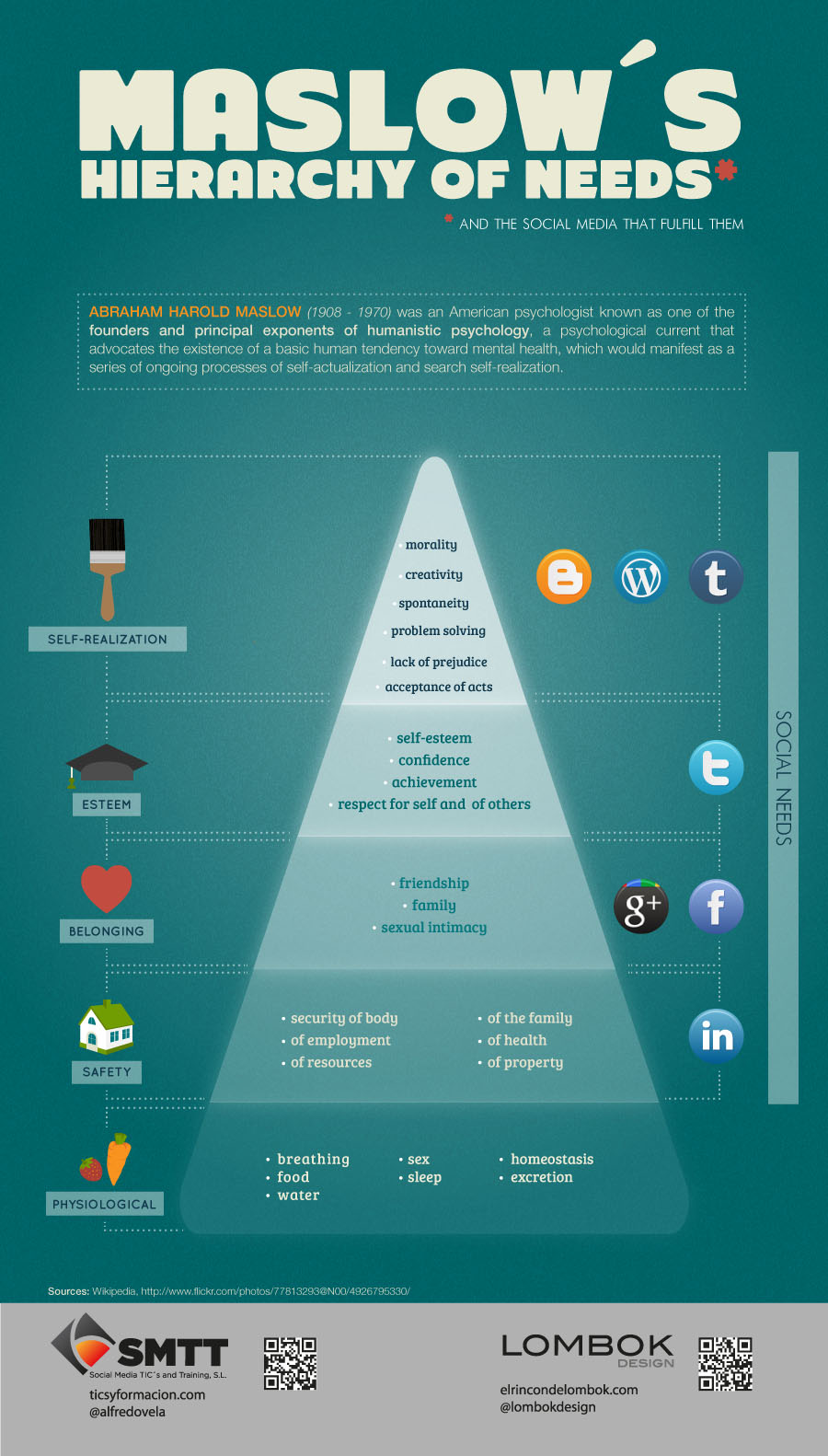Leave a Comment:
[…] See on tresnicmedia.com […]
ReplyPsychology and marketing go together. It’s like the Taylor ham, egg, and cheese on a bagel (It’s a Jersey thing). Psychology is the scientific study of mental functions and behavior. While marketing, on the other hand, is (at a very basic understanding) the way you promote and advertise products and services. The hierarchy of needs was devised by Abraham Maslow to explain the fundamentals of human behavior.
This is the biggest part of the pyramid that forms Maslow’s Hierarchy of Needs. Think of necessities that are required for human survival. Food, water, shelter, and clothing covers most of the basics. Does your company provide consumers with any products or services that satisfy the needs of survival? You can zero in on the physiological aspect that your product or service provides and emphasize this need in your marketing campaigns.
For example, if the goal of your product or service is to provide some sort of “comfort” to these physiological needs, that’s something you definitely want to bring to attention to your consumers.
Safety refers to security, protection, law, employment, and health. Income falls into this category. You can have a regular income and a steady providing job for either yourself or your family. While this isn’t exactly essential compared to one’s physiological needs, it is still much desired when it comes to achieving a level of comfort.
Is there something out there that threatens the safety and security of your consumers? While personally I don’t approve of fear tactics in advertisements, it is still, however, a great example of a method that is targeting the consumer’s “safety” in the hierarchy of needs.
Okay, time to put on your psychologist hats! Things are about to get pretty deep at this part of the pyramid. This section is where family, friendship, and intimacy come into play.
Maslow said that it is important for humans to feel a sense of belonging and love within our social circles. Take a look back to the dark and hormonal periods of puberty and high school. There’s your stereotypical group of jocks, nerds, popular kids, unpopular kids, or whatever else group there might be according to the classic movie definitions about this turbulent time of your life. Now, what if you didn’t fit into any groups at all?
Those four years of high school would have been pretty tough. As human beings, we want to be listened to and accepted by others. Mob mentality would be a very extreme example of this, but how about when something goes viral on the Internet?
Let’s take a look at social media. If your Facebook friend posted a piece of content, you’re going to be more likely to look at it and more likely even to share the piece of content to your network of friends, too. Think about that funny video your friend just posted from YouTube. If it gave you a good laugh, I guess I’ll share it too with everyone else! Either consciously or unconsciously, you”ll feel a sense of belonging by partaking in this group mentality of social sharing.
In a company’s point of view, if you want your social media campaigns to work, engage your customers by making them interact with the company, or with each other. An awesome example of this is a company that makes a sweepstakes campaign on Instagram or Twitter that gets the consumer to take a funny picture of themselves with the product and then using a particular hashtag for the contest and the winner gets some cool limited edition product or something along those lines. You’re engaging your customers and that’s what you want to do with social media!
Esteem is the desire to be recognized and rewarded for your achievements either internally or externally or even both. Personal and professional growth falls into this section of the pyramid.
Think of employee of the month. Doesn’t it feel great when your beautiful face is featured on the wall for being awesome? This is an example of an internal reward. It makes you feel better about yourself because you’re being acknowledged by everyone. Getting something like a raise on your salary would be an external reward because it’s monetary. Does your company reward its customers with a loyalty or referral program? Perhaps your company gives some of its proceeds away to charity when the customer buys something. These are just some ideas to help brainstorm ways to make the customer feel special.
This pertains to one’s desire and potential to achieve a degree of mastery and accomplishment in life. People want to excel and succeed. Social media is another great outlet in which you can effectively engage your customers.
Let’s say you’re Doritos running the whole “create your own ad” competition for the Super Bowl. They instill drive, creativity, and reward all in one by creating a competitive atmosphere for the consumers to get involved in. If you’re a winner, your ad gets shown on TV for millions of viewers. By creating this “drive” for your consumers, they’re self-actualization need is being realized.
When you’re running marketing campaigns on social media platforms or trying to better understand the consumer decision making process, knowing Maslow’s Hierarchy of Needs and a little bit of psychology definitely helps you get into the minds of your customers. Don’t forget that to learn is to earn!
Here is a great infographic depicting Maslow’s Hierarchy of Needs and social media by Lombok Design and SMTT: 

[…] See on tresnicmedia.com […]
Reply